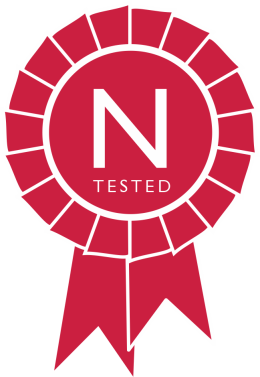
In our latest blog, we talk with Andrew Cliff (Group Compliance Manager for Naylor Industries Plc) about Naylor’s stringent approach to product testing and why it matters. Andrew has nearly 30 years’ experience in quality assurance which includes running testing laboratories and working as a process engineer. He joined Naylor in 2011 and heads up Naylor Industries’ compliance and quality assurance team.
Why is product testing so important and what are the risks of specifying an untested product?
Product testing gives our customers confidence that they are buying products which are designed and manufactured to an appropriate standard in an appropriate way. The specification of a cheaper, untested or uncertified product may sometimes seem appealing but ultimately it exposes the purchaser and end user to unnecessary risk.
Untested or uncertified products may not perform as required, performance issues may take some time to appear and problems can be expensive to rectify. In addition, with products such as drainage that’s required for use in contaminated brownfield land there is the added risk of harm being done to end users and even future litigation.
We urge all of our customers to specify correctly by buying products from a reputable manufacturer who has reputable product certifications. Naylor products are tested internally to programmes agreed with certification bodies. Many products carry third party certifications issued by British Standards Institute (BSI) and, for highways products, BBA HAPAS certification.
How does Naylor industries approach to product testing?
At Naylor Industries, we take product testing extremely seriously. We undertake a significant amount of traditional product testing and, on some product lines, undertake testing which goes above and beyond the regulatory testing requirements as required by the British Standards Institute (BSI) and the BBA.
For example, several specialist plastics products have testing regimes which are dictated by each individual customer, and products that carry third party certification often have test regimes that exceed the minimum requirements as we both test in process and verify the product at the end.
On average, how many products go through your testing and certification process per year?
In 2021, we tested over 2,300 batches of product. Each batch consists of multiple tests covering dimensional and technical performance.
So, how big is your compliance and quality assurance team?
We employ one part-time and eight full-time compliance and quality assurance professionals at Naylor Industries including four Quality Engineers who are assigned to our four largest manufacturing sites. These engineers provide support to our Managing Directors and maintain the focus on quality issues. The size and expertise of the Naylor Industries’ compliance team reflects the importance we place on stringent product testing and our commitment to meeting the highest standards of certification for our products.